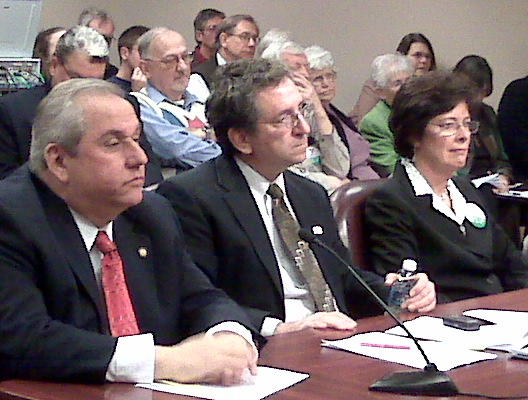Constitution. Like Canada's constitution, ours is a federalist design, where powers are divided between the national and state government, per the 10th Amendment's deference to state initiative in matters not explicitly the preserve of the national government. Canadian single payer healthcare adoption started in the Province of Saskatchewan before going national. In the U.S., over the last forty years or so, national power both public and non-profit has become heavily corporatized through the unregulated and outsized role of Big Money (a kind of legalized and fused Plutocracy-Kleptocracy), through the Supreme Court's Citizen's Uniteddecision of January 2010. The dramatic return to a late-19th century-, Gilded Age-style corporate high-jacking of nearly all institutions, including medicine, has made our political work much more difficult at the national level, and increasingly challenging in most states. At the same time, the Supreme is now dominated by five Federalist Society-trained judges who, while bringing a corporatist legal training reminiscent of the pre-1940s SCOTUS, they are also far more inclined to favor state power over national power where domestic policy is concerned.
Solidarity. The fact that U.S. Rep. Pramila Jayapal now carries both the national single-payer bill (HR 676) and the state-enabling universal healthcare bill (HR 6097), speaks both to the complementarity of the legislation, and the two-track political approach that underscores the need for solidarity among and between activists working at each level. Jayapal is a community organizer who personifies and models the kind of collaborative efforts we should engage: inside-outside strategies, broad-based coalition-building, intersectionality (connect the dots across all related issues), solidarity, and State-Based Universal Health Care (SBUHC) Act opportunity.
Opportunity, therefore, is the final key to our success based on 2018 election results -- as California, New York, Wash State, Maine, and Minnesota, by virtue of stronger-than-ever Democratic power convergence, offer real chances of success, potentially very soon but, I will argue, if, and only if, Jayapal's ERISA-waivering and federal healthcare dollar-financing HR 6097 passes out of Congress and is signed by the next president.
Our work is cut out for us. We have five clear reasons why our movement needs to become the leading instrument for winning Medicare for All in 1, 3, or 5 states in the next few years, based on a common understanding of our History, our Constitution, the Citizens United decision, activist Solidarity, and recognized Opportunity.
(Note: You can view every article as one long page if you sign up as an Advocate Member, or higher).





